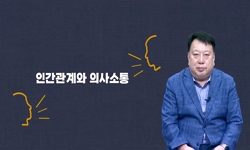The purpose of this research is to discover correlation of the relationship of university Taekwondo coaches and athletes with athletes’ satisfaction and commitment on the team. The subject of this study is 422 Taekwondo players participated in Unive...
http://chineseinput.net/에서 pinyin(병음)방식으로 중국어를 변환할 수 있습니다.
변환된 중국어를 복사하여 사용하시면 됩니다.
- 中文 을 입력하시려면 zhongwen을 입력하시고 space를누르시면됩니다.
- 北京 을 입력하시려면 beijing을 입력하시고 space를 누르시면 됩니다.

대학 태권도지도자와 선수간의 인간관계와 팀 몰입, 선수만족의 관계분석 = Correlation Analysis between University Taekwondo Coach-Athlete Relationship and Athletes’ Satisfaction and Commitment to Their Team
한글로보기https://www.riss.kr/link?id=A99557349
- 저자
- 발행기관
- 학술지명
- 권호사항
-
발행연도
2012
-
작성언어
Korean
- 주제어
-
등재정보
KCI등재
-
자료형태
학술저널
-
수록면
401-415(15쪽)
-
KCI 피인용횟수
6
- 제공처
- 소장기관
-
0
상세조회 -
0
다운로드
부가정보
다국어 초록 (Multilingual Abstract)
The purpose of this research is to discover correlation of the relationship of university Taekwondo coaches and athletes with athletes’ satisfaction and commitment on the team. The subject of this study is 422 Taekwondo players participated in University Taekwondo Championship in April and May of 2012, hosted by Korea University Taekwondo Federation. Data has been analyzed with SPSS program(17.0 version). Such analyses include exploratory factor analysis, frequency analysis, Pearson’s correlation analysis, and multiple regression analysis. As a result, first, the relationship between university Taekwondo coaches and athletes had meaningful correlation on the commitment to the team, especially on affective commitment among other elements of the team element. Second, the relationship between university Taekwondo coaches and athletes also had meaningful effect on athletes’ satisfaction. It showed that the human relationship was more influential on exercise satisfaction and negative satisfaction than on life satisfaction. Third, the attention and commitment that university Taekwondo coaches paid had meaningful effect on athletes’ satisfaction. It showed that such commitment presented more correlation to life satisfaction part. Good relationship with university Taekwondo coaches allow players to be more committed to the team, which gives greater satisfaction to athletes and brings the improvement of their performance. Thus, Taekwondo instructors in the university team should not put their effort only on the way to improve players’ Taekwondo skills. They should also endeavor to build up emotional relationship that respects and sympathize athletes.
목차 (Table of Contents)
- Abstract
- Ⅰ. 서론
- Ⅱ. 연구방법
- Ⅲ. 결과
- Ⅳ. 논의
- Abstract
- Ⅰ. 서론
- Ⅱ. 연구방법
- Ⅲ. 결과
- Ⅳ. 논의
- Ⅴ. 결론 및 제언
- 참고문헌
참고문헌 (Reference)
1 안재석, "프로축구 선수들의 커뮤니케이션 유형과 직무만족, 조직몰입 및 팀성과의 관계" 전북대학교 대학원 2009
2 장진, "프로스포츠 선수들의 직업 만족도와 조직 몰입도에 관한 연구" 성균관대학교 대학원 2003
3 오주환, "테니스지도자의 감성리더십이 지도효율성에 미치는 영향" 단국대학교 교육대학원 2008
4 서재하, "테니스 지도자의 변혁적 리더십과 서번트 리더십이 여자 테니스 선수의 운동만족, 조직몰입, 운동성과에 미치는 영향" 한국여성체육학회 26 (26): 115-131, 2012
5 임성욱, "태권도지도자의 변혁적-거래적 리더십과 선수만족과의 관계" 대한무도학회 11 (11): 165-177, 2009
6 유영대, "태권도지도자와 선수간의 인간관계와 팀 몰입 및 선수만족의 관계" 한국체육대학교 사회체육대학원 2011
7 김영갑, "태권도의 수련정도와 참여동기 및 지도자 이미지의 관계" 한국체육학회 44 (44): 523-533, 2005
8 황시내, "태권도 지도자의 변혁적 리더십이 선수들의 조직몰입에 미치는 영향" 우석대학교 교육대학원 2011
9 하철수, "태권도 선수들이 선호하는 지도행동유형에 따른 만족 및 경기력의 관계" 대한무도학회 11 (11): 113-124, 2009
10 임종식, "청소년 태권도 지도자의 리더십유형에 따른 선수만족" 2 (2): 73-83, 2011
1 안재석, "프로축구 선수들의 커뮤니케이션 유형과 직무만족, 조직몰입 및 팀성과의 관계" 전북대학교 대학원 2009
2 장진, "프로스포츠 선수들의 직업 만족도와 조직 몰입도에 관한 연구" 성균관대학교 대학원 2003
3 오주환, "테니스지도자의 감성리더십이 지도효율성에 미치는 영향" 단국대학교 교육대학원 2008
4 서재하, "테니스 지도자의 변혁적 리더십과 서번트 리더십이 여자 테니스 선수의 운동만족, 조직몰입, 운동성과에 미치는 영향" 한국여성체육학회 26 (26): 115-131, 2012
5 임성욱, "태권도지도자의 변혁적-거래적 리더십과 선수만족과의 관계" 대한무도학회 11 (11): 165-177, 2009
6 유영대, "태권도지도자와 선수간의 인간관계와 팀 몰입 및 선수만족의 관계" 한국체육대학교 사회체육대학원 2011
7 김영갑, "태권도의 수련정도와 참여동기 및 지도자 이미지의 관계" 한국체육학회 44 (44): 523-533, 2005
8 황시내, "태권도 지도자의 변혁적 리더십이 선수들의 조직몰입에 미치는 영향" 우석대학교 교육대학원 2011
9 하철수, "태권도 선수들이 선호하는 지도행동유형에 따른 만족 및 경기력의 관계" 대한무도학회 11 (11): 113-124, 2009
10 임종식, "청소년 태권도 지도자의 리더십유형에 따른 선수만족" 2 (2): 73-83, 2011
11 이우만, "엘리트 골프선수들의 심리적 방해요인과 대처방안" 세종대학교 대학원 2000
12 임인수, "스포츠지도자의 대응가치 리더십과 운동선수의 기능수준과 팀응집력, 운동몰입 및 운동만족간의 인과분석" 한국스포츠리서치 14 (14): 537-556, 2003
13 박세우, "빙상지도자-선수간의 인간관계와 선수만족의 관계" 한국체육대학교 대학원 2002
14 최현진, "리더의 정서표현, 정서지능, 정서규범, 성별, 성역할 태도, 그리고 리더십효과성간의 관계" 서울대학교 대학원 2008
15 장종오, "대학 태권도 지도자의 감성 리더십이 팀 효과성에 미치는 영향" 대한무도학회 14 (14): 58-69, 2012
16 김수연, "대학 태권도 선수들이 지각한 태권도 코치의 서번트 리더십에 따른 임파워먼트와 선수만족의 관계" 대한무도학회 12 (12): 157-169, 2010
17 신대철, "국가대표 사이클 선수의 경기력 형성요인" 한국체육학회 42 (42): 343-354, 2003
18 박장규, "고등학교 태권도 지도자의 멘토링에 따른 선수만족과 운동몰입" 한국사회체육학회 (47) : 539-550, 2012
19 송춘현, "고등학교 운동선수의 선수생활 만족도 척도 개발에 관한 연구" 5 (5): 193-200, 2000
20 황순필, "고교생이 지각한 교사-학생 인간관계와 자아개념 및 정신건강과의 관계 연구" 延世大學校 大學院 1998
21 Goleman, D., "Working with emotional intelligence" Bantam 2002
22 Scanlan, T. K., "Social psychological aspects of competition for male youth sports participations; predicator of enjoyment" 8 : 25-35, 1993
23 Riemer, H. A, "Leadership and satisfaction in athletics" 17 : 276-293, 1995
24 Carron, A. V., "Cohesiveness in sport groups: interpretation and consideration" 4 : 123-138, 1982
25 Csikzenmihalyi, M., "Beyond boredom and anxiety" Jossey- Bass 1975
26 김계수, "AMOS구조방정식 모형분석" SPSS 아카데미 2004
27 Meyer, J. P., "A three-component conceptualization of organization commitment" 1 (1): 61-89, 1991
동일학술지(권/호) 다른 논문
-
운동습관이 고지방 식이섭취 후 지방대사, 동맥경화도에 미치는 영향
- 한국체육과학회
- 이윤미(Lee, Yoon-Mi)
- 2012
- KCI등재
-
BCAA攝取とジャンプトレ―ニングガラットの課題成功率に与える影響
- 한국체육과학회
- 李載永(Lee, Jae-Young)
- 2012
- KCI등재
-
- 한국체육과학회
- 김승열(Kim, Sung-Ryol)
- 2012
- KCI등재
-
태권도 수련 여성과 비수련 여성의 전신 골밀도 비교분석
- 한국체육과학회
- 양윤권(Yang, Yoon-Kwon)
- 2012
- KCI등재
분석정보
인용정보 인용지수 설명보기
학술지 이력
| 연월일 | 이력구분 | 이력상세 | 등재구분 |
|---|---|---|---|
| 2026 | 평가예정 | 재인증평가 신청대상 (재인증) | |
| 2020-01-01 | 평가 | 등재학술지 유지 (재인증) |  |
| 2017-01-01 | 평가 | 등재학술지 유지 (계속평가) |  |
| 2013-01-01 | 평가 | 등재학술지 유지 (등재유지) |  |
| 2010-01-01 | 평가 | 등재학술지 선정 (등재후보2차) |  |
| 2009-01-01 | 평가 | 등재후보 1차 PASS (등재후보1차) |  |
| 2008-01-01 | 평가 | 신청제한 (등재후보1차) |  |
| 2007-01-01 | 평가 | 등재후보 1차 FAIL (등재후보1차) |  |
| 2006-01-01 | 평가 | 등재후보학술지 유지 (등재후보2차) |  |
| 2005-01-01 | 평가 | 등재후보 1차 PASS (등재후보1차) |  |
| 2004-01-01 | 평가 | 등재후보 1차 FAIL (등재후보1차) |  |
| 2003-01-01 | 평가 | 등재후보학술지 선정 (신규평가) |  |
학술지 인용정보
| 기준연도 | WOS-KCI 통합IF(2년) | KCIF(2년) | KCIF(3년) |
|---|---|---|---|
| 2016 | 0.66 | 0.66 | 0.67 |
| KCIF(4년) | KCIF(5년) | 중심성지수(3년) | 즉시성지수 |
| 0.66 | 0.66 | 0.593 | 0.18 |




 DBpia
DBpia







